DOE-INFN Summer Students Exchange Program at INFN Bari
The US Department of Energy (DOE) and the Istituto Nazionale di Fisica Nucleare of Italy (INFN)
announce the 2024 edition of the Summer Exchange Program dedicated to promote the exchange
of students in science between the two countries.
INFN is one of the leading organization worldwide promoting basic scientific research and has tight connections with DOE activities in many areas of interest: Particle Physics, Astroparticle Physics, Nuclear Physics, Theoretical Physics and Detector Physics.
We call for applications of US students willing to join a INFN research team in Italy for a two-month period between June 1st and October 31st, 2024.
There are 11 positions available. Applicants can choose among 15 different INFN sites and 49
research projects. Grants amount to €6.000,00 to cover travel and living expenses.
To qualify for the fellowship, it is mandatory, that each university student to undertake an insurance policy, at their own expense, covering medical, assistance, accident and illness expenses for the duration of the fellowship.
Eligible candidates must be enrolled as students at a US university and they must have begun, at the time of application, at least the third year of a US University curriculum in physics, engineering or computing science, or planning to start the third year in 2024.
Applications, in electronic form, must be sent to INFN not later than March 3rd, 2024 (11.59 pm CET) through the website:https://reclutamento.dsi.infn.it/.
The application should include:
• a short CV following the template provided in the recruitment site, describing the applicant’s academic and research experience. Only PDF files will be accepted.
• a list of the University courses and scores. Only PDF files will be accepted.
• the three preferred INFN sites and the research projects chosen among those listed in the Annex I.
• the motivation for applying to this program and a statement on research interests, specifying and justifying the selected projects.
Candidates will be excluded from participation in this call if they submit their application later than the indicated deadline.
Incomplete applications (lack of information or missing files) will not be considered.
Selection of participants will be carried out by the Selection Committee which will establish the evaluation criteria before having seen the applicant’s documentation.
The selection of the candidates will be based on:
– the statement on research interests;
– the curriculum vitae and studiorum.
At the end of the selection process, the results of the selection will be published on the INFN website (Job Opportunities – Details of the announcement).
Successful candidates will then receive an official communication from the INFN administration Offices.
Selected students are also requested to send their official University transcript by e-mail (digital scanned copy) before accepting the appointment with INFN.
Since September 2010, citizens of countries like US may enter Italy for a period of up to 90 days without a visa, to take part in the exchange program (please check here http://vistoperitalia.esteri.it/home/en).
In Bari there are 4 position available:
- Fermi-LAT
Title: Gamma-ray analysis of transient sources at high energies
Description: Gamma-ray emissions in our Universe are clear signatures of non-thermal and/or catastrophic events happening in or outside our Galaxy. The gamma-ray sky is in constant evolution, being characterized by a number of variable or transient sources, such as flaring Active Galactic Nuclei (AGN) or Gamma-ray Bursts (GRBs). In its almost 15 years of operation, the Large Area Telescope (LAT) onboard the Fermi satellite proved to be an ideal instrument to monitor the gamma-ray sky thanks to its high sensitivity and wide field of view. In this project, a selection of variable sources will be analyzed with Fermi-LAT data, in order to detect its gamma-ray emission and study the mechanisms originating this emission.
Activities: The student will learn how to analyze Fermi-LAT data using the tools fermitools and fermipy. The most important data products, such as light curves and spectra, will be obtained. A detailed study of the emission mechanisms will be conducted, in order to derive an interpretation model to study the origin of the gamma-ray emission.
Tutor: E. Bissaldi (elisabetta.bissaldi@ba.infn.it)
Activity period: June-July 2024
Local Secretariat: Sig. Antonio Silvestri
- R&D activities for gamma-ray instruments
Title: Characterization of a prototype detector for MeV gamma-rays
Description: The MeV sky is poorly explored and at present there are no scientific missions dedicated to the study of the Universe in this energy band. Hence the necessity of a new satellite instrument optimized for the MeV energy range. In this project, a prototype of an active converter module for the detection of MeV gamma-rays will be characterized. The prototype is made of thin scintillator crystals coupled to WLS fibers readout by Silicon Photomultipliers. The design allows the photon conversion through Compton scattering and the measurement of position and energy of the recoil electron.
Activities: The student will study the prototype detector, focusing on the characterization of the photosensors (SiPMs) and of the readout electronics. The student will learn the basics of data acquisition systems, using different programming languages, such as python and LabVIEW. The student will characterize the detectors with a particular focus to the readout electronics.
Tutor (s): M.N. Mazziotta (marionicola.mazziotta@ba.infn.it), L.Di Venere (leonardo.divenere@ba.infn.it)
Activity period: June-July 2024 or September-October 2024
Local Secretariat: Sig. Antonio Silvestri - R&D activities for very high energy gamma-ray astronomy
Title: calibration studies for the frontend electronics of the prototype Schwarzschild Couder Telescope for CTA
Description: The Schwarzschild-Couder Telescope (SCT) is a dual mirror telescope proposed for the Cherenkov Telescope Array (CTA) Observatory to detect very high energy astrophysical gamma rays. The design of the telescope is based on a dual mirror optics and a high resolution SiPM focal plane, which allow an increased sensitivity and angular resolution compared to similar single-mirror telescopes. A prototype (pSCT) is installed and being commissioned at the Fred Lawrence Whipple Observatory (FLWO) in Arizona, USA. An upgrade of the current camera is ongoing.
Activities: The student will learn the main functionalities of the frontend electronics (FEE) modules developed for the pSCT upgraded camera, based on the SMART ASIC, used for the SiPM signals preamplification, and the CTC and CT5TEA ASICs, for the signal digitization amd trigger generation respectively. The will learn the basic concepts of data acquisition systems, using different programming languages, such as python and LabVIEW. The student will perform the basic measurements for the FEE module calibration procedure, studying the FEE performance as a function of the operating temperature.
Tutor (s):L. Di Venere (leonardo.divenere@ba.infn.it)S. Loporchio (serena.loporchio@ba.infn.it) Activity period: June-July 2024 or September-October 2024 Local Secretariat: Sig. Antonio Silvestri - LHCb
Title: Search for the flavour partners of the X(3872) meson
Description:
After 20 years the nature of the X(3872) is still unclear. Its properties challenge the potential models of the charmonium states and many authors have suggested that the X(3872) might be a 4 quark state. A neat prediction of such scenario is the existence of flavour partners as for the conventional hadrons. The student will look for charged and strange partners of the X(3872) by analysing data collected by the LHCb experiment.
The project demands good analytical and programming (C++, root, Python, or similar) skills.
Further readings:
https://cerncourier.com/a/tetraquarks-back-in-the-spotlight/
https://lhcb-outreach.web.cern.ch/2020/05/28/more-on-χc13872-puzzle/
Tutor: Marco Pappagallo
Activity period: June-July (recommended) September-October
Local Secretariat: Sig. Antonio Silvestri
Call info
On your arrival
On your arrival, please, contact within two days the secretariat from Monday to Friday morning (9.00-13.00/1500-17.00).
They will communicate your arrival to the Police-headquarters, sending them your passport copy.
You don’t need to request a “Residence Permit” (permesso di soggiorno).
Then you have to get in touch with the INFN Administration office which will provide you a standard scheme for health insurance.
INFN will provide you a card for lunches (7.00 Euro a day).
Electricity
220 V, AC, 50Hz

European (2-pin) plug/socket

Italian (3-pin) plug/socket
